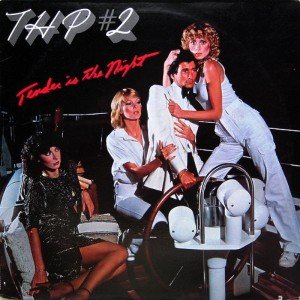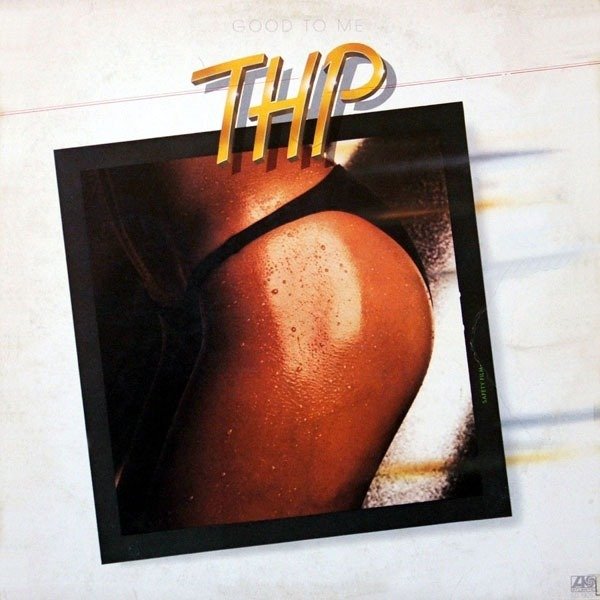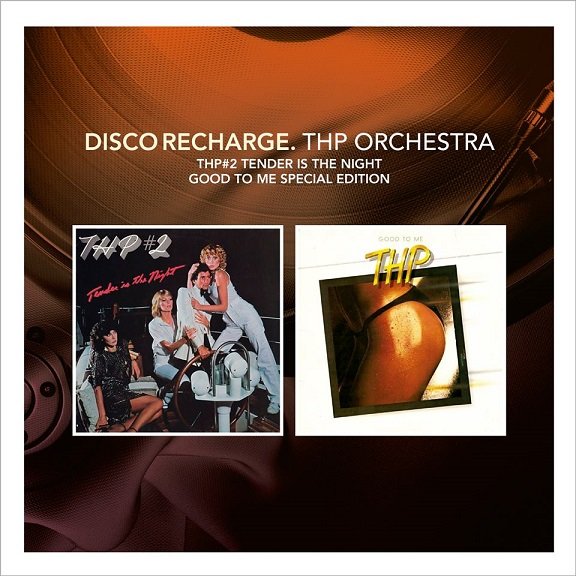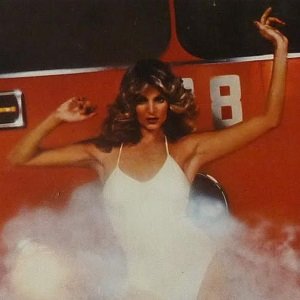DISCO RECHARGE: THP ORCHESTRA – TENDER IS THE NIGHT/GOOD TO ME: Playing The Disco Orchestra Out
During its mid-‘70s rise to prominence, disco featured a lot of orchestral touches. It made sense at the time as disco derived its initial sense of elegance from orchestrated soul recordings, particularly Philly soul. However, tastes change with the times and the rise of electronics within dance music meant that disco’s orchestras would ultimately be phased out.The THP Orchestra was one of the disco studio projects that had to deal with this stylistic shift. Their final two albums, Tender Is The Night and Good To Me, show how the group’s writers/producers Willi Morrison and Ian Guenther navigated their way through the changing tides of dance music – and these two albums have been collected in a new two-CD set from the Disco Recharge reissue series.TENDER IS THE NIGHT: This was the third album for THP Orchestra. Like its predecessor Two Hot For Love, it features one extended epic plus a number of shorter but no less substantial exercises in orchestral disco. “Weekend Two Step” is the album’s anchor, a 13 minute-plus suite that builds from a couple of piano notes and some handclaps into a full-blown production number with strings and horns. The lyrics harken back to ‘20s-era dance crazes but the soulful, sleek vocals of the Duncan Sisters pull the listener back into the ‘70s, not to mention talk-box guitar effects. An inventive arrangement constantly shifts sections and tweaks layers of instrumentation to ensure it never gets tired.The rest of the album maintains these levels of variety and ambition. The album’s title track seems to be a midtempo ballad, complete with a pillowy string section, but the choruses surprise with their Latin lilt and bouncy rhythms. “Half As Nice” takes an old Italian pop tune and offsets its sugary-sweet melody with a densely rhythmic arrangement dotted with dramatic string crescendos and a surprising use of syncopation during the verses for dramatic effect.Album finale “Music Is All You Need” is a killer, replacing the kind of soft/loud arrangement contrasts you’d see in a rock or pop song with orchestral/minimal contrasts that pit dramatically arranged string and horn heavy melodic sections with arid, minimalist breaks of bass or guitar. It’s a real feat of arranging, one that shows off the inventiveness and musicality typical of THP Orchestra.GOOD TO ME:By 1979, disco was headed in an electronic direction that would determine its future – thus ensuring orchestral acts would soon look quaint. Good To Me represents Morrison and Guenther’s attempt to move with the time, presenting a stripped down version of the group (now simply dubbed THP). The horns remain but strings are either minimized or thrown out altogether in favor of synthesizers. The compositional style also changes here, with the album favoring a grittier
This was the third album for THP Orchestra. Like its predecessor Two Hot For Love, it features one extended epic plus a number of shorter but no less substantial exercises in orchestral disco. “Weekend Two Step” is the album’s anchor, a 13 minute-plus suite that builds from a couple of piano notes and some handclaps into a full-blown production number with strings and horns. The lyrics harken back to ‘20s-era dance crazes but the soulful, sleek vocals of the Duncan Sisters pull the listener back into the ‘70s, not to mention talk-box guitar effects. An inventive arrangement constantly shifts sections and tweaks layers of instrumentation to ensure it never gets tired.The rest of the album maintains these levels of variety and ambition. The album’s title track seems to be a midtempo ballad, complete with a pillowy string section, but the choruses surprise with their Latin lilt and bouncy rhythms. “Half As Nice” takes an old Italian pop tune and offsets its sugary-sweet melody with a densely rhythmic arrangement dotted with dramatic string crescendos and a surprising use of syncopation during the verses for dramatic effect.Album finale “Music Is All You Need” is a killer, replacing the kind of soft/loud arrangement contrasts you’d see in a rock or pop song with orchestral/minimal contrasts that pit dramatically arranged string and horn heavy melodic sections with arid, minimalist breaks of bass or guitar. It’s a real feat of arranging, one that shows off the inventiveness and musicality typical of THP Orchestra.GOOD TO ME:By 1979, disco was headed in an electronic direction that would determine its future – thus ensuring orchestral acts would soon look quaint. Good To Me represents Morrison and Guenther’s attempt to move with the time, presenting a stripped down version of the group (now simply dubbed THP). The horns remain but strings are either minimized or thrown out altogether in favor of synthesizers. The compositional style also changes here, with the album favoring a grittier  though no less musically ambitious take on disco.The first side is bookended by two pieces with dance-themed lyrics: “Dancin’ Is Alright” is a relentlessly rhythmic piece where every element, even the piano lines and horns, is used to give the song an unstoppable up-down beat while “Dancin’ Forever” boasts a killer chorus where group vocals are used for a hypnotically rhythmic effect and a great section near the end where lead vocalist Joyce Cobb scat-sings a duet with the horns. Between those two towers of dance is “Two Hearts, One Love,” a disco track that feels like an old Northern Soul number updated to disco, right down to its girl-group backing vocals and the brassy, diva-esque lead from Cobb.The album looks toward dance music’s future on side two. The title track is the gem of the album, a kind of proto-Hi-NRG number that layers its taut groove with lots of atmospheric synths and some soulful guitar licks. Cobb’s lead vocal drives the song with an authoritative, almost Millie Jackson-esque level of worldliness about romance. “Who Do You Love” closes the album on a boogie note with a synth-layered bass line, delicate keyboard frills and a killer instrumental break where the band weaves a variety of variety of syncopated instrumental lines around a Moroder-esque programmed synth line.Overall, Good To Me is much leaner and more musically straightforward than its predecessors but it has a high level of musicality that ensures it engages the serious disco fan.BONUS MATERIAL:
though no less musically ambitious take on disco.The first side is bookended by two pieces with dance-themed lyrics: “Dancin’ Is Alright” is a relentlessly rhythmic piece where every element, even the piano lines and horns, is used to give the song an unstoppable up-down beat while “Dancin’ Forever” boasts a killer chorus where group vocals are used for a hypnotically rhythmic effect and a great section near the end where lead vocalist Joyce Cobb scat-sings a duet with the horns. Between those two towers of dance is “Two Hearts, One Love,” a disco track that feels like an old Northern Soul number updated to disco, right down to its girl-group backing vocals and the brassy, diva-esque lead from Cobb.The album looks toward dance music’s future on side two. The title track is the gem of the album, a kind of proto-Hi-NRG number that layers its taut groove with lots of atmospheric synths and some soulful guitar licks. Cobb’s lead vocal drives the song with an authoritative, almost Millie Jackson-esque level of worldliness about romance. “Who Do You Love” closes the album on a boogie note with a synth-layered bass line, delicate keyboard frills and a killer instrumental break where the band weaves a variety of variety of syncopated instrumental lines around a Moroder-esque programmed synth line.Overall, Good To Me is much leaner and more musically straightforward than its predecessors but it has a high level of musicality that ensures it engages the serious disco fan.BONUS MATERIAL: As is often the case with a Disco Recharge release, this double feature of Tender Is The Night and Good To Me throws in plenty of bonus edits and remixes for both albums. Tender Is The Night features two 12-inch mixes and three single edits. The Guenther/Morrison team was very careful about the melodic content of their work so the edits work well, with “Weekend Two Step” coming off as an effective bit of dance-pop in its single version.It’s also worth noting that the 12-inch mixes of “Music Is All You Need” and “Weekend Two Step” are shorter than their album counterparts and thus fulfill a similar function to the single edits. The editing is good on each remix and both songs are strong enough to work at any of the lengths included on this disc.The Good To Me disc includes edits and 7-inch mixes for four of its five songs. They all pare down the album-length versions skillfully, with the 7-inch mix of “Dancin’ Forever” being particularly effective in how it narrows the song down to a straightforward pop-song structure.The set is rounded out by good liner notes from Alan Jones that incorporate an interview with Willi Morrison. The veteran producer has some interesting things to say here, revealing how the nature of record label finances kept him from collecting his just rewards for his work.All in all, the Disco Recharge collection Tender Is The Night and Good To Me is an excellent example of dance-floor archaeology for the disco set, collecting two overlooked but deserving cult albums and giving them a deluxe treatment that educates the buyer about how disco worked during the end of its boom time. If you’re a serious genre enthusiast, this is well worth picking up.
As is often the case with a Disco Recharge release, this double feature of Tender Is The Night and Good To Me throws in plenty of bonus edits and remixes for both albums. Tender Is The Night features two 12-inch mixes and three single edits. The Guenther/Morrison team was very careful about the melodic content of their work so the edits work well, with “Weekend Two Step” coming off as an effective bit of dance-pop in its single version.It’s also worth noting that the 12-inch mixes of “Music Is All You Need” and “Weekend Two Step” are shorter than their album counterparts and thus fulfill a similar function to the single edits. The editing is good on each remix and both songs are strong enough to work at any of the lengths included on this disc.The Good To Me disc includes edits and 7-inch mixes for four of its five songs. They all pare down the album-length versions skillfully, with the 7-inch mix of “Dancin’ Forever” being particularly effective in how it narrows the song down to a straightforward pop-song structure.The set is rounded out by good liner notes from Alan Jones that incorporate an interview with Willi Morrison. The veteran producer has some interesting things to say here, revealing how the nature of record label finances kept him from collecting his just rewards for his work.All in all, the Disco Recharge collection Tender Is The Night and Good To Me is an excellent example of dance-floor archaeology for the disco set, collecting two overlooked but deserving cult albums and giving them a deluxe treatment that educates the buyer about how disco worked during the end of its boom time. If you’re a serious genre enthusiast, this is well worth picking up.


